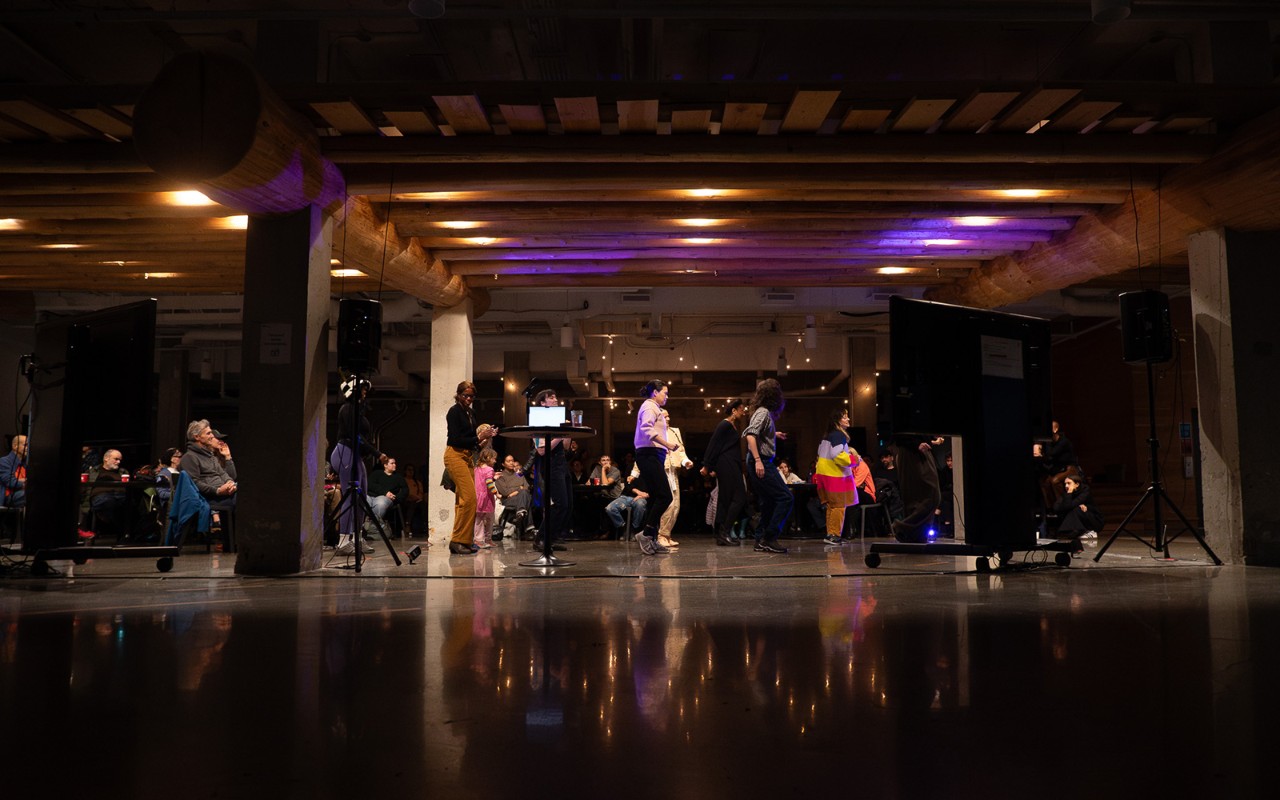Article
Triple A Transit: Affordable, Available and Accessible
On Thursday October 15, 2015 SFU’s Vancity Office of Community Engagement hosted a panel in partnership with Surrey Urban Mission, Collingwood Neighbourhood House, the City of Vancouver, and the Transit Working Group titled, “Triple A Transit: Affordable, Available and Accessible.”
Click here to watch the Triple A Transit panel!
Peter Greenwell, member of the Transit Working Group and Coordinator of Homeless Programs at Collingwood Neighbourhood House, answered a few questions for us in reflection on the event.
What is the Transit Working Group (TWG), and what is your mandate?
The TWG is spearheading the development of affordable transit for people living in poverty, especially for homeless and homeless at risk people in Metro Vancouver. We are focusing on establishing a regional committee of key decision-makers with the responsibility of developing a regional homeless transit plan for Metro Vancouver. We are a subcommittee of Vancouver Urban Core Community Workers Association and are co-sponsored by the Greater Vancouver Shelter Strategy.
What was the aim of Triple A Transit?
To demonstrate good examples of existing program in cities close to Vancouver that provides improved low-income access without stigmatizing people who depend on public transit and live in poverty.
What were the highlights of the evening, for you personally and the rest of your colleagues?
It’s doable. It possible to improve access for low-income people, and it’s possible to do it an effective, affordable non-stigmatizing way. A unique feature of King County is their partnership with their local health authority who ensures eligibility criteria are met. This results in an extremely accessible application/renewal process that also reduces duplication of financial need confirmations, making it easier for people to successfully demonstrate eligibility. A highlight from Calgary is their recognition that poverty is the issue versus age focusing on any special needs group such as seniors or the disabled, and their proposed fare sliding scale that looks at a ‘living wage’ as a realistic cut off point for some level of assistance (people living at 130% of the Low Income Cut Off widely recognized as Canada’s poverty line).
What do you hope participants took away from the conversation?
There are models available to ensure people living in poverty—especially the homeless and homeless at risk—for us to learn from, we aren’t don’t have to start from scratch. It’s being done in lots of other cities now, we just need to political will.
How can participants (and others) contribute to advocating for accessible transit?
Endorse the work of the TWG, in particular to reduce barriers for people trying to exit homelessness and get on with their lives. Become more aware of the issues at www.vuccwa/transit-working-group Endorse the proposal of the TWG to create a regional homeless transit planning table by emailing homehelp1@telus.net Write the Mayor’s Council and urge them to empower TransLink to waive transit fines for people who can demonstrate significant economic hardship as the reason for not paying fares. Engage in TransLink’s Transport 2040 review; Stress that Goal 3.3 of Transport 2040 must recognize economic barriers, not just age or disability related barriers. Raise transit access issues at every public opportunity including with their Mayor’s and Council, provincial government and any community transportation meetings
Any other reflections on the evening?
Audience members shared their fears and frustrations about transit and demonstrated the issues that were identified in the presentations. Recommendations from the audience included asking the Provincial Government to provide posters to TransLink reminding people of existing transit programs and upcoming critical dates – for example renewals for the 2016 BC Bus Pass are due asap; request the fare gates not be implemented until affordability is addressed, and for Compass card deposit of $6 be waived where extreme poverty can be demonstrated. The TWG is following up on these and other recommendations.
The TWG believes that Transit is part of the solution to homelessness by enabling people to access shelter, housing and critical appointments. The goal is to end homelessness, and the TWG recommendations support that goal.
Latest/Related Updates
-
December 18, 2024

December 18, 2024
Between October 30th to November 10th this year, the 21st annual Heart of the City festival animated the Downtown Eastside with over a hundred community-oriented events under the theme Threads of Connection.
-
September 25, 2024

September 25, 2024
The release of States of Injury — with Wendy Brown marks Below the Radar’s 250th episode—a major milestone since the podcast’s inception in 2018.
-
July 10, 2024

July 10, 2024
On June 22, the cast and crew of Project Limelight’s production of East Side Story were greeted with applause as a full house welcomed the young performers back to the Fei and Milton Wong Experimental Theatre stage.
-
January 10, 2024

January 10, 2024
Our Below the Radar podcast mini-series See How We Run! looked at local arts collectives and organizations, highlighting conversations about creation, spacemaking, accessibility, and self-determination within the framework of Vancouver’s cityscape.
-
August 15, 2023

August 15, 2023
With details of our 5-year anniversary celebration event to come, let’s take a sneak peek of the upcoming season.



